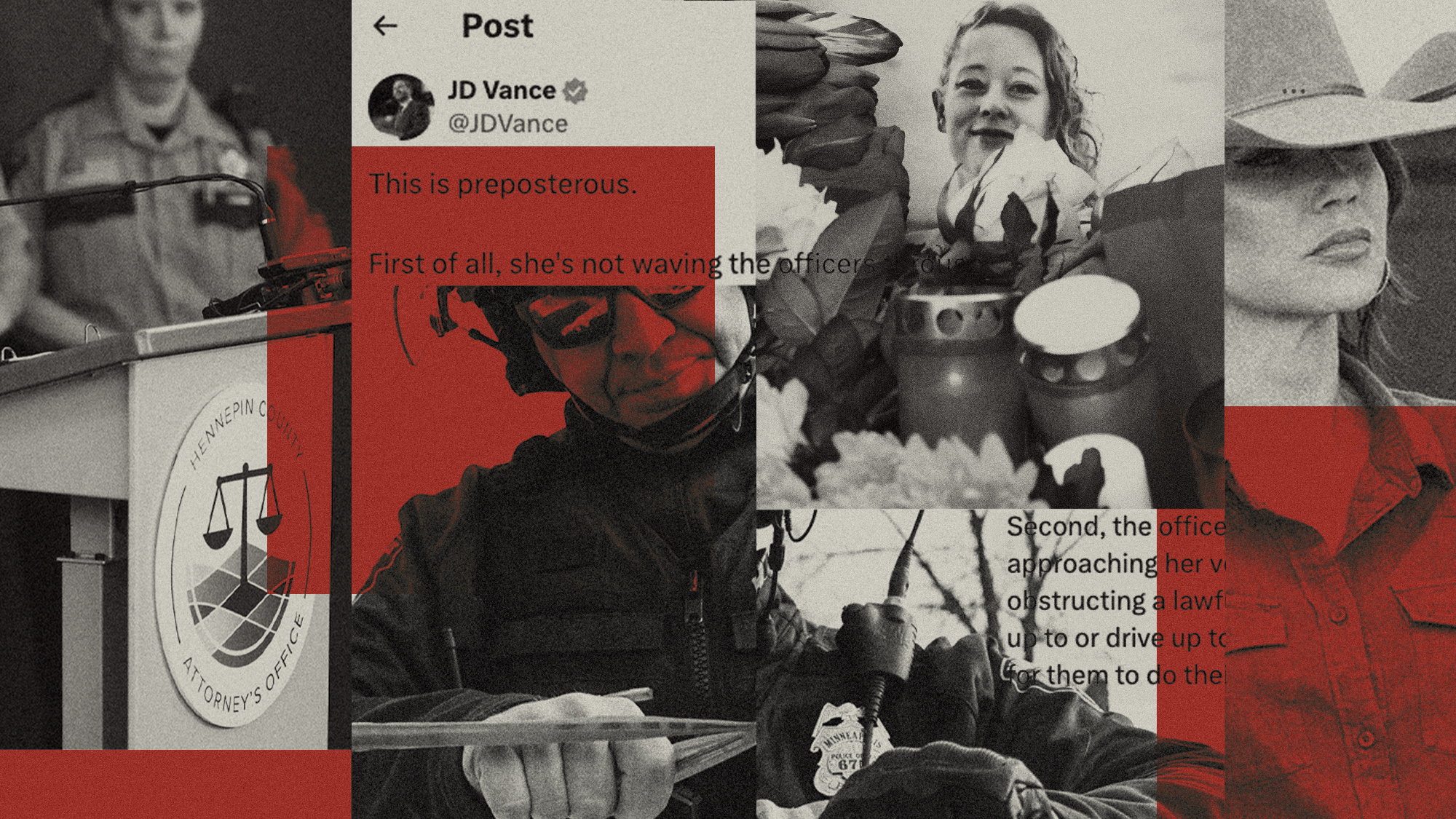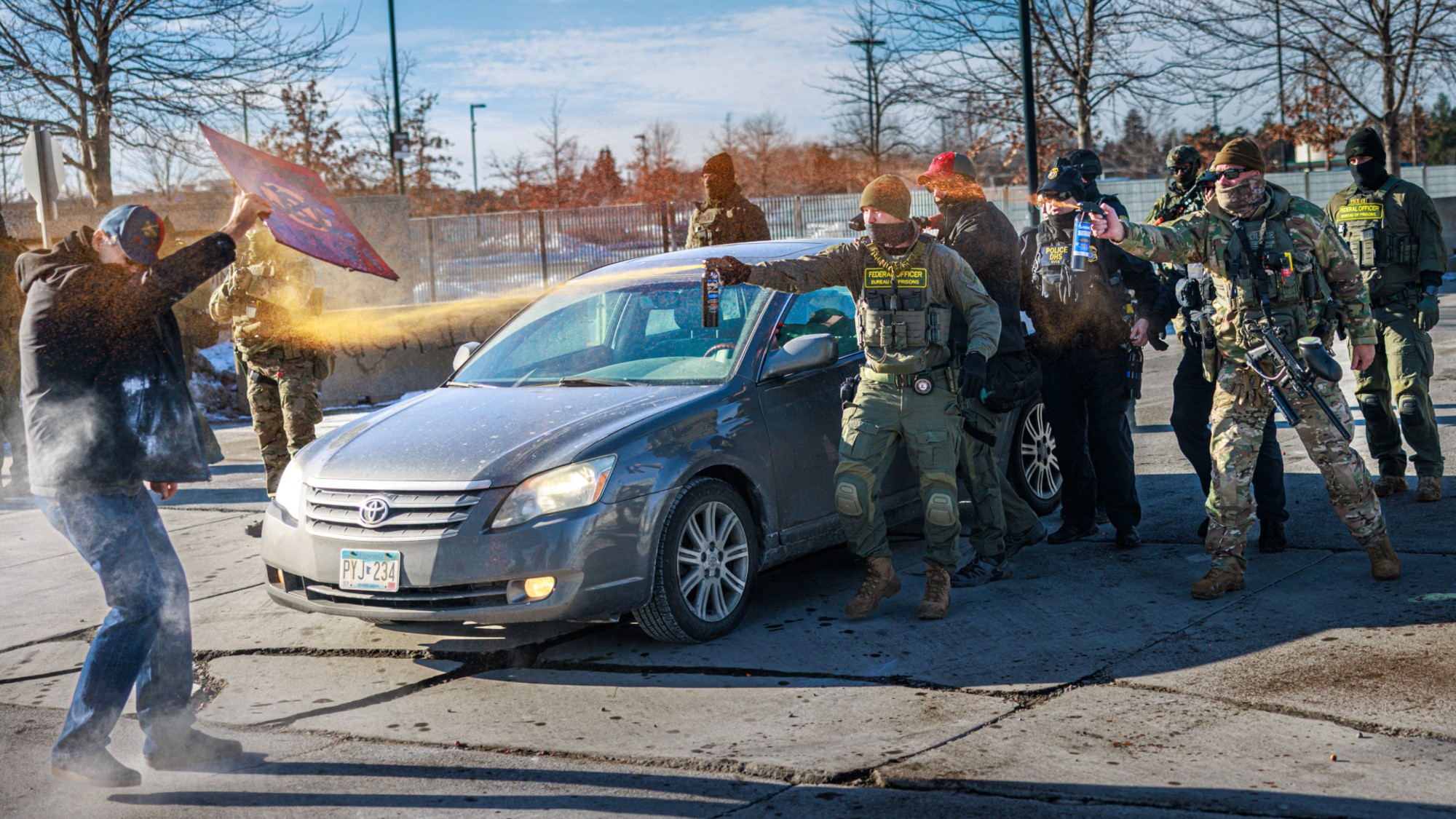A "wall of mistrust" in Pyongyang
Leaders of the two Koreas are trying to get past a "wall of mistrust" in their historic summit, South Korean President Roh Moo-Hyun said Wednesday. North Korean leader Kim Jong-Il asked Roh to extend his visit to four days, instead of three, bu
Leaders of the two Koreas met twice on Wednesday during their historic summit, but South Korean President Roh Moo-Hyun said it was hard to break through a "wall of mistrust." North Korean leader Kim Jong-Il invited Roh to extend his three-day visit by a day, but Roh declined. Still, South Korean officials, who hoped for disarmament concessions in exchange for economic aid, said the talks would end Thursday as a success.
As Kim and Roh talked, China announced that the countries involved in six-party talks that ended Sunday had agreed on a plan to disable North Korea's nuclear facilities by the end of the year. The U.S. is expected to remove North Korea from its terrorism list in return.
No matter what "grandstanding rhetoric" we hear from Kim, said the Seoul Korea Herald in an editorial, his big concern is securing as much economic help as he can. "As the leader of one of the most destitute countries in the world, he had to obtain as much aid from the well-to-do South as possible to feed, shelter and clothe his impoverished people." Kim should remember that if he hadn't broken a 1992 denuclearization accord, he wouldn't be in this fix.
The Week
Escape your echo chamber. Get the facts behind the news, plus analysis from multiple perspectives.

Sign up for The Week's Free Newsletters
From our morning news briefing to a weekly Good News Newsletter, get the best of The Week delivered directly to your inbox.
From our morning news briefing to a weekly Good News Newsletter, get the best of The Week delivered directly to your inbox.
At least both sides are being "civil," said The Seattle Times in an editorial. This is, after all, only the second time leaders from the North and the South have met since the Korean War was halted. “Admirable progress after so much blood, bluster, and nuttiness.”
There’s reason to hope for the best, said The Korea Times in an editorial. The "11th-hour" accord reached by the two Koreas -- along with the U.S., China, Japan, and Russia -- marked a breakthrough. Without this agreement, Kim and Roh would have been “stuck in nuclear quagmire too deeply to touch such future-oriented issues as reunification and co-prosperity.”
It’s hard to know how hopeful to be, said The Wall Street Journal in an editorial. The participants in the six-party talks didn’t sign a formal agreement, only a draft open to further comment. And North Korea was supposed to provide a full accounting of its nuclear program within 60 days under an agreement signed in February, and “we’re still waiting.” A little “transparency” would be nice.
A free daily email with the biggest news stories of the day – and the best features from TheWeek.com
-
 Striking homes with indoor pools
Striking homes with indoor poolsFeature Featuring a Queen Anne mansion near Chicago and mid-century modern masterpiece in Washington
-
 Why are federal and local authorities feuding over investigating ICE?
Why are federal and local authorities feuding over investigating ICE?TODAY’S BIG QUESTION Minneapolis has become ground zero for a growing battle over jurisdictional authority
-
 ‘Even those in the United States legally are targets’
‘Even those in the United States legally are targets’Instant Opinion Opinion, comment and editorials of the day
-
 The billionaires’ wealth tax: a catastrophe for California?
The billionaires’ wealth tax: a catastrophe for California?Talking Point Peter Thiel and Larry Page preparing to change state residency
-
 Bari Weiss’ ‘60 Minutes’ scandal is about more than one report
Bari Weiss’ ‘60 Minutes’ scandal is about more than one reportIN THE SPOTLIGHT By blocking an approved segment on a controversial prison holding US deportees in El Salvador, the editor-in-chief of CBS News has become the main story
-
 Has Zohran Mamdani shown the Democrats how to win again?
Has Zohran Mamdani shown the Democrats how to win again?Today’s Big Question New York City mayoral election touted as victory for left-wing populists but moderate centrist wins elsewhere present more complex path for Democratic Party
-
 Millions turn out for anti-Trump ‘No Kings’ rallies
Millions turn out for anti-Trump ‘No Kings’ ralliesSpeed Read An estimated 7 million people participated, 2 million more than at the first ‘No Kings’ protest in June
-
 Ghislaine Maxwell: angling for a Trump pardon
Ghislaine Maxwell: angling for a Trump pardonTalking Point Convicted sex trafficker's testimony could shed new light on president's links to Jeffrey Epstein
-
 The last words and final moments of 40 presidents
The last words and final moments of 40 presidentsThe Explainer Some are eloquent quotes worthy of the holders of the highest office in the nation, and others... aren't
-
 The JFK files: the truth at last?
The JFK files: the truth at last?In The Spotlight More than 64,000 previously classified documents relating the 1963 assassination of John F. Kennedy have been released by the Trump administration
-
 'Seriously, not literally': how should the world take Donald Trump?
'Seriously, not literally': how should the world take Donald Trump?Today's big question White House rhetoric and reality look likely to become increasingly blurred